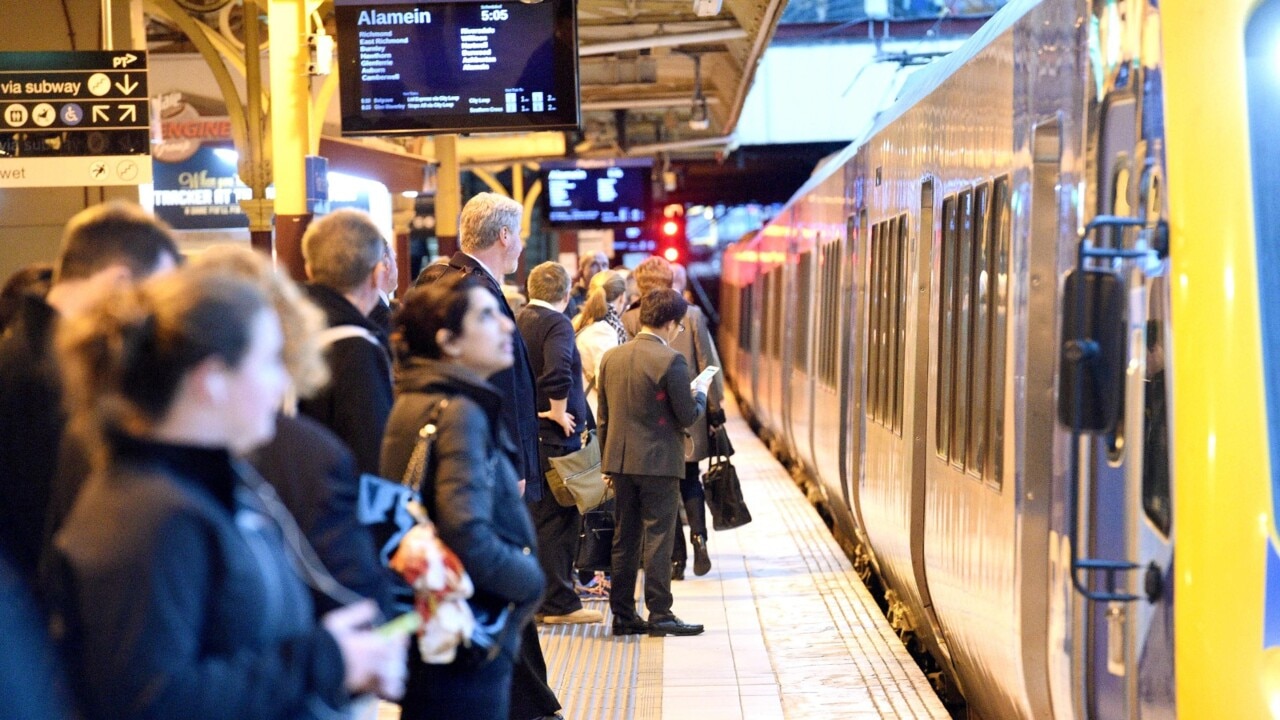Matt Comyn’s pay soars 50pc as workers offered 17pc wage raise
Commonwealth Bank boss Matt Comyn saw his pay rise by 50 per cent this year from $6.97m, mostly thanks to his first deferred bonuses since becoming CEO in 2018.

Commonwealth Bank boss Matt Comyn has pocketed a huge 50 per cent pay rise, as his first deferred bonuses since becoming CEO in 2018 vested this year and Australia’s largest lender posted a record $10.2bn cash profit.
Mr Comyn’s pay jumped from $6.97m to $10.42m in 2023, mainly thanks to the doubling of his long-term variable bonus from prior years vesting, to a total $6.8m, from $3.4m a year earlier.
According to the bank’s annual report, his fixed salary did not increase but he finally received “variable remuneration relating to performance over the five-year period” to June 30, 2023.
That award was “the first award granted and vested to Mr Comyn following his appointment as CEO,” says the bank’s annual report. Adding that 76 per cent of his remuneration was related to performance.
The increase comes as Australia’s largest lender offered a 17 per cent wage increase to workers over four years, below pay proposals of NAB but higher than those at ANZ.
“We have tabled an offer and we communicated that to our people of 12.75 per cent over three years,” Mr Comyn told The Australian.
Adding the 4.25 per cent increase for CBA staff last year, the offer is slightly lower than NAB’s 17.5 per cent offer over four years and ANZ’s 16.5 per cent deal.
“I think it’s a reasonable position,” Mr Comyn said. “We hope it will be supported.”
Finance Sector Union National Secretary Julia Angrisano said CBA’s record $10.2 profit meant it could afford a better deal for its workers.
“Very obviously, the CBA can afford to pay more. Their proposed pay rise would be a pay cut in real terms, given inflation,” she said.
“CEO Matt Comyn‘s pay increase of 50 per cent to 10.43 million dollars is a slap in the face to CBA workers who delivered the profit that drove this increase. CBA needs to reward its staff with industry leading pay increases.”
That also comes as wage inflation has partly led to a 9 per cent increase in staff expenses for the year. CBA employed an average 49,100 people over the year, 5 per cent more than a year earlier.
Simon Moutter, who chairs CBA’s remuneration committee said the bank overall and “the executive leadership team” had performed “strongly this year”.
“Total shareholder return over the period 1 July 2019 to 30 June 2023 was above peers and dividends returned to shareholders were higher than the prior year,” he said.
He said the boon delivered to banks by the rapid increases in cash rates by central bankers led the board to tighten performance hurdles for executives mid-year.
“Through excellent financial management and operational execution, group net profit after tax and profit after capital charge results materially exceeded these more challenging targets, a good outcome for our shareholders,” he said.







To join the conversation, please log in. Don't have an account? Register
Join the conversation, you are commenting as Logout